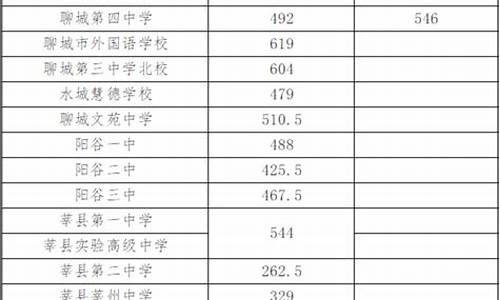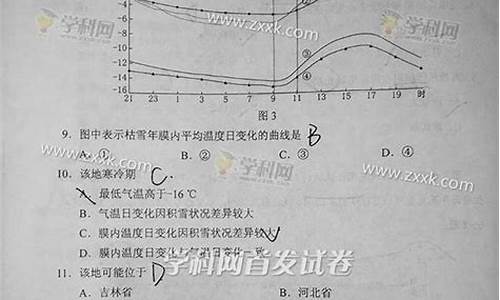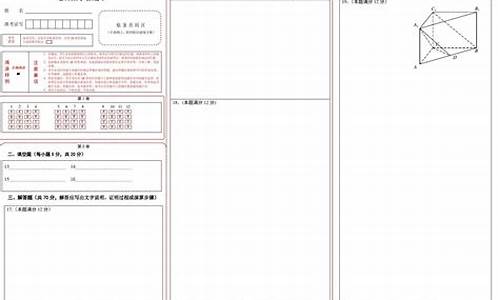英语高考阅读理解专题训练答案-英语高考阅读理解专题
1.高考英语阅读理解易错题分析
2.一道11年的北京高考英语阅读理解题,求解
3.高考英语阅读理解题型及解题技巧
4.高考英语阅读理解专项训练附答案解析?
5.高考英语阅读理解训练题及答案(2)
高考英语阅读理解易错题分析

高考英语阅读理解易错题分析
在高考英语试卷的各类题型中,阅读理解和英语作文分值最大,高三学生在复习阅读理解时也比较吃力,不知从何入手,更不知道怎么提高阅读理解能力及分数。下面我为你整理了高考英语阅读理解易错题分析,希望对您有所帮助!
高考英语阅读理解易错题分析1:
WANG Hao and Wang Liqin, two of China's top table tennis players, both saw the World Table Tennis Championships as a chance to prove themselves. But there was only one champion (冠军) and Wang Hao, 25, won it last Tuesday in Yokohama , Japan.
Wang Hao, who won the men's doubles title with Chen Qi last Monday, played with spirit to beat Wang Liqin 11-9, 13-11, 11-5, 11-9.
Wang Hao said it was his mental toughness (心理稳定) that made the difference. "I was disappointed by my performances in past championships and the last two Olympic Games. But I have tried to pull myself together and prepared well. This is the result."
Wang Hao said he has always understood the importance of physical training and technical skills. Now he knows the need for mental preparation as well. Having two Olympic silvers had left him feeling bitter (痛苦的). The bitterness perhaps explains why he has not always played at his best in the past.
"I've come to understand that you can learn important lessons from failure," he said. "Losing can build your character and make you a stronger player." His next goal, or dream, is to win the gold medal at the London Olympics in 2012.
Liu Guoliang, head coach of China's table tennis team, sang the praises of Wang Hao's victory. "This is just the beginning of his rise," said Liu. "It's the confidence-booster he needs to make further progress."
1.According to the passage, Wang Hao won _____ gold medals in the World Table Tennis Championships in Yokohama, Japan.
A.only one B.two C.three D.four
2.From Wang Hao, we can know the main reason for his beating Wang Liqin is ______.
A.his technical skills B. his physical training
C.his mental toughness D. his past experience
3.What is the next goal of Wang Hao?
A.To win the title of the champion at the 2012 Olympics
B.To beat Wang Liqin again
C.To prove himself in the future competitions
D.To win more golds in future
4.What can we learn from Wang Hao?
A.Failure is the mother of success.
B.Never give up until you succeed.
C.Where there is a will, there is a way.
D.A good beginning makes a good ending.
1.错解分析典型错误A.错因分析没有全面地阅读文章,以点代面了。
解题指导细节理解题。根据文章第一段和第二段可知。此类题可以带着问题在文中采用查读法寻找答案。
答案本题的正确选项为B.
2.错解分析典型错误A或B或是D。错因分析是没有抓住细节理解题的重点,审题不细。因为题干中有一个mainly.
解题指导细节理解题。根据文章第三段中的第一句话可知。对于细节理解题的选项的选择,一定要理解题干,并防止以次代主。
答案本题的正确选项为C。
3.错解分析典型错误D.错因分析审题不清,D项也许是Wang Hao的远期目标,但是题干是the next goal。
解题指导细节理解题。根据文章倒数第二段中的“His next goal, or dream, is to win the gold medal at the London Olympics in 2012.”可知。注意审题。
答案本题的正确选项为A。
4.错解分析典型错误B或C.错因分析在于学生对文章的理解不透彻。
解题指导推理判断题。根据文章倒数第二段可知。推理判断题要认真研读文章,根据文章中的内容来进行推理判断。
答案本题的正确选项为A。
高考英语阅读理解易错题分析2:
Have you ever used solar energy to boil a bottle of water or take a shower? Have you ever thought that solar energy is far away from our daily lives? You may doubt about that. In Japan, there is a wonderful program of Solar City.
Solar City is located 80,000 meters northwest of Tokyo, among the strawberry fields. This is one of Japan’s sunniest places. Solar City covers about 410,000 square metres. Seventy-five percent of the homes there are covered by solar panels. The has provided people there with the solar panels for free. In addition, the has paid 9.7 billion yen to study how to make full use of solar energy. A number of solar energy companies have also given money to help this program.
People living in Solar City think using solar panels is a good way to save money. However, saving money is not the only reason why people are moving into this city. "We moved here because of the panels. It was something we wanted,” said Mika Hiroshima. She moved to Solar City with her husband and two little children about four years ago.
It is well known that Japan is a country that is short of energy, but the Solar City program has brought hope for the country. "People want solar energy,” said an official of Solar City. Actually in Solar City, there are 550 families making use of solar energy at the moment. All of them say that they want to keep using solar energy even after the program ends in 2010. In sunny days, solar panels are able to provide more than enough energy for a normal family. However, the solar panels are not that useful in cloudy days. Despite this, Solar City is still a wonderful program because it inspires people to wisely use the limited energy.
1.The writer uses the two questions at the beginning of the passage to ______.
A.test the readers’ knowledge about solar energy
B.draw the readers’ attention to the topic
C.learn the situation that solar energy is used
D.invite the readers to answer them
2.The third paragraph of the passage is mainly about ______.
A.the reason why people are moving into Solar City
B.how the people are living in Solar City
C.the things that people living in Solar City need
D.the life experience from the people living in Solar City
3.It can be inferred from the passage that _________.
A.Japan is a country which is lacking in energy
B.the solar panels are only useful in sunny days
C.the Solar City program will be successful
D.Solar City is a very modern big city
参考答案及解析:
1.错解分析典型错误A.错因分析:信息错位,张冠李戴。题干是考查文章开头的写作目的,而非全篇的写作目的。
解题指导写作目的题。作者在文章开头提出问题让读者思考,或是简单介绍与主题有关的其他事物,目的往往是为了引出主题,故选B。
答案本题的正确选项为B。
2.错解分析典型错误B.错因分析是没有抓住文章段落的主题。
解题指导主旨大意题。从本段来看,第一句话说出,生活在使用太阳电池板省钱。第二句话说出了,生活在不仅是为了省钱,还为了太阳电池板。因此,可知答案为A。考查文章的段落大意,此时要注意段落的主题句,可位于段首,段尾或段落的中间,也有的要从段中自己提取的。
答案本题的.正确选项为A。
3.错解分析典型错误A或B.错因分析是没有掌握试题的特点,推理判断题要从文中进行推断,而不是文中的原话。
解题指导推理判断题。根据文章的最后一段中的“All of them say that they want to keep using solar energy even after the program ends in 2010.”可知。此项目的目的达到了。因此,C项正确。D项,可根据文中的“Solar City covers about 410,000 square metres.”知,Solar City并不是一个大城市。A、B两项是文中的事实,而非推理。推理判断题分为简单推理和复杂推理。所谓简单推理就是以表面文字为前提,以具体事实为依据进行推理,做出判断。这种推理方式比较直接,只要弄清事实,即可结合常识推断出合理的结论。而复杂推理就是不但要以文字为依据,而且还要以文章的语境、内涵为前提。这是一种间接而复杂的逻辑推理方式。考生要推断出文章没有表明但又合乎逻辑的推理,就必须由表及里地归纳或演绎。
答案本题的正确选项为C。
;一道11年的北京高考英语阅读理解题,求解
64. The underlined word “engage” in Para.4 probably means ______.
答案A. explore 探讨
The real reason why I ask students to leave technology at the door is that I think there are very few places in which we can have deep conversions and truly engage complex ideas.
66. It can be inferred from the last paragraph that the author ______.
答案是D. values technology-free dialogues in his class
I’m not saying that I won’t ever change my mind about technology use in my history class, but until I hear a really good reason for the change ,I’m sticking to my plan. A few hours of technology-free dialogue is just too sweet to give up.
本文 谈的是 不用 电脑等设备 所以是作者 把 在课堂上 不用电脑等设备 的 会话讨论 看的很重要 too sweet to give up.太好了以至于 不能放弃
高考英语阅读理解题型及解题技巧
关于高三英语复习中的阅读理解题,成都美博的老师为同学们梳理了四类题型的相关解题方法及攻略,供同学们酌情参考:
一、主旨大意题
标志词:title,subject,main,idea,topic,theme 等词
1. 归纳标题题
特点:短小精悍,一般多为一个短语,涵盖性强,一般能覆盖全文意思,精确性强,表达范围要恰当,不能随意改变语意程度或色彩。
2. 概括大意题
特点:包括寻找段落大意(topic)和文章中心思想(main idea)
解题技巧:
A. 位于段首
往往在文章开头,先点出主题,然后围绕主题做具体陈述。
判断第一句是否为主题句,可以分析段落首句与第二、三句的关系,若第二句开始就对第一句进行说明,则第一句就是主题句。
有些段落,主题句后面有明显引出细节的信号词,如:for example, an example of, first, second, next,last,finally,to begin with, also, ,besides,one...the other,some ,others等
B. 位于段尾
有些文章,会在开头列举事实,然后通过论证阐述作者的核心论点。当一种观点不易解释清楚或不易别人接受时,主题句便会到段落末尾才出现。可以通过引出结论的信号词,来确定主题句的位置在段尾,如:so,therefore,thus,consequently,in conclusion,in short,
in a word,to sum up等
C. 位于段中
先介绍背景和细节,接着用一句综合性或概括性的话概括前面的内容,然后再围绕主题展开对有关问题的深入讨论,这种主题句往往会在段落中间出现。先提出问题,,然后给予回答/点出主题思想(主题句),最后给予解释
D. 首尾呼应
主题句在段落开头和结尾先后出现,但并非简单重复,后一个主题句对该主题作最后的评述,或对要点作一概括,或使之引申留给读者去思考
E. 无明确主题句
找关键词(出现频率较高),归纳总结
注意:
新题型中有一个选项是干扰项,易犯三种错误:
(1)表述过于表面,只涵盖该段个别细节
(2)表述过于笼统,已经超出该段内容
(3)表述于段落内容无关,在段落中找不到相关依据
二、细节理解题
考查内容主要涉及时间、地点、人物、事件、原因、结果、数字等议论文中例证细节和定义类细节。这类题答案一般都能在文中找到。但答案不一定是文中原句,要根据文章信息自行组织语句回答问题。
1. 事实细节题——寻读法
直接理解题:who,what,which,when,where,why,how提问,或判断正误;
间接理解题:需与原文信息转换,表达上与原文有差异
2. 排列顺序题——首尾定位法
找出第一个事件和最后一个事件,用排除法缩小范围
3. 图文匹配题——按图索骥理清线索
设题形式:给出图表,根据图表提问问题
4. 数字计算题——(方法:审题——带着问题找细节-对比、分析、计算)
可直接找到相关细节,但需经过计算得到答案
三、推理判断题
主要考查对文章隐含或深层含义的理解能力,要求根据内容做出合乎逻辑的判断,包括对作者观点的理解、态度的判断、对修辞语气、隐含意思的理解等。
题干关键词:infer(推断),indicate(象征、暗示),imply/suggest(暗示),conclude(作出结论),assume(假定、设想)
1. 细节推理判断题
一般可根据短文提供的信息或借助生活常识进行推理判断
2. 预测推理判断题
根据语篇对文章接下来的内容或可能的结局进行猜测
3. 推测文章来源或读者对象
4. 写作意图、目的、态度推断题
a.询问写作目的,选项词常为:explain(解释),prove(证明),persuade(劝说),advise(劝告),comment(评论),praise(赞扬),criticize(批评),entertain(娱乐),demonstrate(举例说明),analyze(分析)等
b.询问语气态度,选项词常为:neutral(中立的),sympathetic(同情的),satisfied(满意的),enthusiastic(热情的),subjective(主观的),pessimistic(悲观的),optimistic(乐观的),critical(批评的),doubtful(怀疑的);hostile(敌对的)等
解题技巧:
1. 文中直接陈述的内容不能选,要选择根据文章推理出来的选项。
2. 选择的答案一定要在文中找到依据或者理由。
3. 要忠实于原文,以文章提供的事实和线索为依据,不能以自己的观点代替作者想法;不要脱离原文主观臆断。
四、语义猜测题
考点:
1. 猜测某个词、词组、句子的意义
2. 对文中的多义词或词组进行定义
3. 判断某个代词的指代对象
解题技巧:
1. 通过因果关系猜词
找出生词与上下文之间的逻辑关系,可借助关联词(because,as,since,for,thus,as a result,of course,therefore等)
2. 通过同义词和反义词的关系猜词
通过同义词猜词,一要看由and或or连接的同义词词组;二要看进一步解释过程中使用的同义词
通过反义词猜词,一要看表转折关系的连词或副词;二要看与not搭配的表示否定的词语
3. 通过构词法猜词
根据前缀、后缀、复合、派生等构词法判断词义
4. 通过定义或释义关系来推测词义
这种同义或释义关系常用is,or,that is,in other word,be called
5. 通过句法功能来推测语义
6. 通过描述猜词
7. 通过常识猜词
高考英语阅读理解专项训练附答案解析?
阅读理解试题是高考英语试卷中分值最重的题型,因此做好阅读理解题是考取高分的关键,考生在备考阶段需要加强阅读理解的训练。下面我为大家带来,希望对大家的的高考英语备考有所帮助。
英语阅读理解专项训练原文The easy way out isn't always easiest. I learned that lesson when I decided to treat Doug, myhu *** and of one month, to a special meal. I glanced through my cook book and chose a menuwhich included homemade bread. Knowing the bread would take time. I started on it as soon asDoug left for work. As I was not experienced in cooking, I thought if a dozen was good, twodozen would be better, so I doubled everything. As Doug loved oranges, I also opened a can oforange and poured it all into the bowl. Soon there was a sticky dough covered with uglyyellowish marks. Realizing I had been defeated, I put the dough in the rubbish bin outside so Iwouldn't have to face Doug laughing at my work. I went on preparing the rest of the meal, and,when Doug got home, we sat down to Cornish chicken with rice. He tried to enjoy the meal butseemed disturbed. Twice he got up and went outside, saying he thought he heard a noise. Thethird time he left, I went to the windows to see what he was doing. Looking out, I saw Dougstanding about three feet from the rubbish bin, holding the lid up with a stick and lookinginto the container. When I came out of the house, he dropped the stick and explained thatthere was something alive in out rubbish bin. Picking up the stick again, he held the lid upenough for me to see. I felt cold. But I stepped closer and looked harder. Without doubt it wa *** y work. The hot sun had caused the dough to double in size and the fermenting yeast***酵母***made the surface shake and sigh as though it were breathing. I had to admit what the livingthing was and why it was there. I don't know who was more embarrassed***尴尬*** by the wholething—Doug or me.
英语阅读理解专项训练试题:
1. The writer's purpose in writing this story is ________.
A. to tell an interesting experience
B. to show the easiest way out of a difficulty
C. to describe the trouble facing a newly married woman
D. to explain the difficulty of learning to cook from books
2. Why did the woman's attempt at making the bread turn out to be unsuccessful?
A. The canned orange had gone bad.
B. She didn't use the right kind of flour.
C. The cookbook was hard to understand.
D. She did not follow the directions closely.
3. Why did the woman put the dough in the rubbish bin?
A. She didn't see the use of keeping it.
B. She meant to joke with her hu *** and.
C. She didn't want her hu *** and to see it.
D. She hoped it would soon dry in the sun.
4. What made the dough in the bin looks frighting?
A. The rising and falling movement.
B. The strange-looking marks.
C. Its shape.
D. Its size.
5. When Doug went out the third time, the woman looked out of the window becauseshe was ________.
A. surprised at his being interested in the bin
B. afraid that he would discover her secret
C. unhappy that he didn't enjoy the meal
D. curious to know what disturbed him
英语阅读理解专项训练答案解析:
1. A。通读文章后,可知作者写这篇文章的目的,是想让人知道她这段有趣的经历,故应选A。
2. D。文中提及:As I was not experienced in cooking I thought if a dozen was good, two dozenwould be better 和 As Doug loved orange, I also opened a can of orange and poured it all intothe bowl,可知这位家庭主妇***即作者***并未按烹调指南行事,故应选 D。
3. C。作者在意识到自己制做面包失败时,put the dough in the rubbish bin outside so I wouldn'thave to face Doug laughing at my work, 故应选C。
4. A。这是对句意和细节理解的题目。文中提及:The hot sun had caused the dough to double in sizeand the fermenting yeast made the surface shake and sigh as though it were breathing, 故应选A。
5. D。文中提及:... the third time he left, I went to the windows to see what he was doing. 可知作者在吃饭时就看出丈夫心烦意乱,频繁出去。当丈夫第三次出去时,作者不知道丈夫出去干什么,出于好奇,就到窗边去看。
高考英语阅读理解训练题及答案(2)
30. What is the argument over Uber according to the passage?
A. Whether it guarantees customers' safety.
B. Whether it provides reliable services.
C. Whether it lowers customers' expenses.
D. Whether it can compete with standard taxis.
31. What will be talked about in the following paragraphs?
A. Existing regulations and laws.
B. Necessary improvements of current laws.
C. Further development of Airbnb and Uber.
D. More downsides of Airbnb and Uber.
D
The old shopkeeper led me through to the back of the shop. The room was filled with boxes and dusty photographs of people holding packages in their hands.
Mr. Hopkins said, ?We have a very wide choice of items for sale. Whenever I serve a new customer, I take their picture.? Mr. Hopkins pointed to an ancient camera on a table.
I began to appreciate the lovely items on sale. I spent a very pleasant hour being shown the commodities in the shop. Finally, I bought an antique jewelry box, a pair of riding boots and a sewing machine.
I was very excited that I had found such a good little shop. ?I will tell all my friends about your lovely place,? I told the shopkeeper. ?Please do not do that, sir?, said Mr. Hopkins. ?This is a special place for special people. You must keep this shop a secret.? Then he took my photograph, and handed me the picture straight away.
?That was quick!? I exclaimed. In the picture I looked proud and excited holding the presents I had bought there.
On Christmas Day, my friends and relatives were delighted with the presents I had bought for them. For weeks, my brother begged me to take him to the wonderful little shop. I finally agreed .
We walked along Oxford Street, passed the department store and found nothing. In its place was an empty space being used as a car park. I checked the area again. There was the music shop, and there was the department store. In between should have been Hopkins and Son, but it wasn?t there.
Just then an old policeman came . ?Are you looking for something, sir? he asked. ?I am looking for a little shop called Hopkins and Son. ?
?Oh yes, there was a shop here once called Hopkins and Son. But it was knocked down over 30 years ago.?
I looked again at the place , and then I reached into my pocket and took out the photograph that Mr. Hopkins had taken of me holding my presents in the little shop.
?How strange? I exclaimed.
32. What did the author think of Hopkins and Son?
A. Big and modern .
B. Old and outdated.
C. Little and dusty.
D. Lovely and wonderful.
33. We can infer from Paragraph 4 that Mr. Hopkins ________.
A. was ashamed of his little shop.
B. didn?t like his shop to be advertised.
C. was one of the author?s special friends.
D. handed the author his picture immediately.
34. What does the underlined word揷ommoditiesn? refer to?
A. The goods in the shop
B. the author?s gifts
C. Photographs taken by Mr. Hopkins
D. Packages held by other customers
35. What can we learn about the shop?
A. It was closed by the police.
B. It was well-known in that area.
C. It was knocked down a few weeks ago.
D. It was between a music shop and a department store.
第二节 (共5小题;每小题2分,满分10分)
根据短文内容,从短文后的选项中选出能填入空白的最佳选项。选项中有两项为多于选项。
Most people believe they don't have much imagination. They are wrong. Everyone
has imagination, 36 Here are three techniques to help you regain your imagination
and creativity from when you were a kid.
Making connections.
This technique involves taking unrelated ideas and trying to find links between
them. First, think about the problem you have to solve or the job you need to do. 37 Think of as many ideas/words associated with candles: light, fire, matches, wax,night, silence, etcas you can and write them down. The next stage is to relate the ideas to the job you have to do.
No limits!
38 You have as much time/space/money, etc. as you want. Think about your goal and the new possibilities. If your goal is to learn to ski, for example, you can now practise skiing every day of your life (because you have the time and the money) . Now adapt this to reality. Maybe you can practise skiing every day in December, or every Monday in January.
39
Look at the situation from a different point of view. Fiction writers often imagine they are the characters in their books. They ask questions: What does this character want? Why can't she get it? What changes must she make to get what she wants? 40 The best fishermen think like fish!
A. Being someone else!
B. Asking questions!
C. Imagine that normal limitations don't exist.
D. Then find an image, word, idea or object, for example, a candle.
E. If your goal involves other people, put yourself in their positions.
F. but most of us, once we become adults, forget how to make use of it.
G. and we are on the way to achieving it whether the way is smooth or tough.
参考答案:
21-23.DAC, 24-27.CAAC, 28-31.CDAB, 32-35.DBAD, 36-40.FDCAE。
声明:本站所有文章资源内容,如无特殊说明或标注,均为采集网络资源。如若本站内容侵犯了原著者的合法权益,可联系本站删除。












